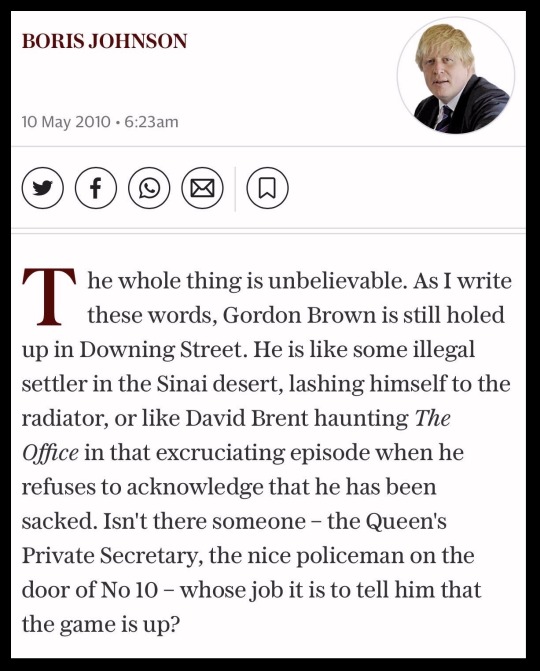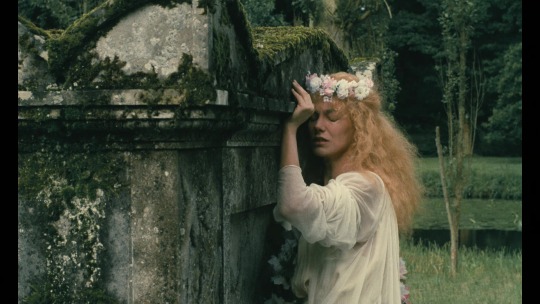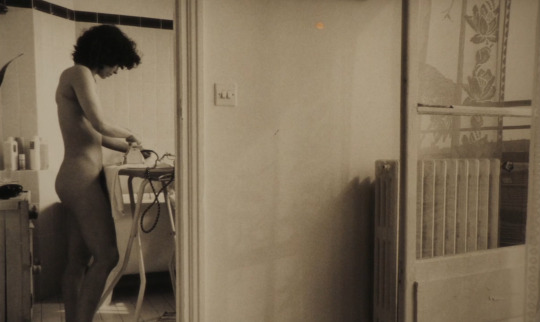#docudramas
Note
Shows or movies based on historic figures and events are hard to pull off if the goals are to be both entertaining and somewhat true to history. If we accept that some inaccuracies can't be avoided in order to appeal to audiences what would you consider cornerstones and pillars about Alexander and his history that can't/shouldn't be touched in order to paint a somewhat realistic picture in media based on him and his life?
I saved this to answer around the time of the Netflix release. For me, there are four crucial areas, so I’ll break it down that way. Also. I recognize that the LENGTH of a production has somewhat to do with what can be covered.
But, first of all…what story is one telling? The story arc determines where the focus lies. Even documentaries have a story. It’s what provides coherence. Is it a political tale? A military one? Or personal? Also, what interpretation to take, not only for Alexander but those around him. Alexander is hugely controversial. It’s impossible to make everyone happy. So don't try. Pick an audience; aim for that audience.
MILITARY:
Alexander had preternatural tactical skills. His strategy wasn’t as good, however, especially when younger. Tactics can be a genius gift (seeing patterns), but strategy requires experience and knowledge of the opposition. The further into his campaign, the more experience he gained, but the cultures became increasingly unfamiliar. He had ups and downs. He was able to get out of Baktria finally by marrying Roxana. That was strategy, not tactics. He beat Poros, then made a friend of him; that’s strategy. Yet he failed to understand the depth of the commitment to freedom among the autonomous tribes south along the Indus, which resulted in a bloody trek south. And his earlier decision to burn Persepolis meant he’d never fully reconcile the Persian elite.
So, it’s super important to emphasize his crazy-mad tactical gifts in all forms of combat, from pitched battles to skirmishes to sieges. Nobody in history ever equaled him except maybe Subatai, Genghis Khan’s leading general. In the end, I think that’s a lot of Alexander’s eternal fascination. He fought somewhere north of 250 battles, and lost none (where he was physically present).
But HOW to show that? What battles to put on screen? Oliver Stone combined three into one + Hydaspes because he had only 2-3.5 hours (depending on which cut you watch). The Netflix series is going to show all four of the major pitched battles…or at least all 3 for the 6-episode first part. They had circa 4.5 hours to play with, but they cut out other things, like Tyre.
Another issue, from the filming/storytelling point-of-view is how to distinguish Issos from Gaugamela for the casual viewer. They’re virtually identical in tactics (and players on the field). So it made a fair bit of sense to me for Stone to conflate them. In a documentary, it’s more important to separate them, largely to discuss the fall-out.
Some v. important clashes weren’t the Big Four. Among these, the sieges of Halikarnassos and Tyre are probably the most impressive. But the Aornos Rock in India was another amazing piece. I’d also include the bridging of the Indus River to illustrate the astonishing engineering employed. Again, if I had to pick between Halikarnassos and Tyre, I’d pick Tyre. I was a bit baffled by Netflix’s decision to show Halikarnassos instead, but I think it owed to an early error in the scripts, where they had Memnon die there. I corrected that, but they’d already mapped out the beats of the episodes, so they just kept Halikarnassos. That’s fine; it was a major operation, just not his most famous siege.
Last, I really wish somebody, someday, will do something with his Balkan campaigns. What he did in Thrace and Illyria, at just 21, showed his iron backbone and quick thinking. It’d make a great “and the military genius is born” set-up, drama wise. But you could use the Sogdian Rock to show the clever streak, at least (“Find men who can fly” … “I did; look up.” Ha) Plus it has the advantage of being where he (maybe) found Roxana.
Last, he fought extremely well--wasn't just good at tactics. Being a good general doesn’t necessarily mean one’s a good fighter. He was. Almost frighteningly brave, so show that too.
RELIGIOUS:
Ya gotta deal with the “Did he really think he was a god?” thing, and the whole trip to Siwah. I obviously don’t think he believed he was a god; it’s one of the things I disliked about the Netflix show’s approach, but they were dead-set on it. I DO think he came to believe he was somehow of divine descent, but of course, that’s not the same as most moderns understand it, as I’ve explained elsewhere. It made him a hero, not a god on a level with Zeus, and to ME, that’s an important distinction that Netflix (and to some degree Stone) rode roughshod over.
But I’d like to see more inclusion of sacrifice and/or omen-reading—religion in general. Cutting the Gordion Knot (omens!). His visit to Troy (Netflix tackled that one). A really cool thing would be to make more of the lunar eclipse before Gaugamela. Again, Netflix touched on that, but it’s one of those chance events that might actually have affected a battle’s outcome, given how seriously the ancient near east took sky omens. (A solar eclipse once halted a battle.) The Persians were freaked out. Even his massacre of the Branchidai in Sogdiana was driven by religion, not military goals. Pick a couple and underscore them.
I give Stone big props for the sacrifice before the Granikos/Issos/Gaugamela battle. It was so well-done, I’ve actually shown it in my classes to demonstrate what a battlefield sphagia sacrifice would look like.
Alexander was deeply religious. Show it.
POLITICAL:
Ah, for ME the most interesting stuff surrounding Alexander occurs at the political level. Here’s where the triumph story of his military victories all went south. He knew how to win battles. He was less good at managing what he’d conquered.
In terms of a story arc, the whole period up to Gaugamela is really the “rise” of the story. Post-Gaugamela, things began to collapse. And I would pin the turn on PERSEPOLIS. Yes, burning it sent home a message of “Mission accomplished.” But he was selective about it. Areas built by Darius I were spared, Xerxes’ were destroyed: a damnio memoriae.
Problem: Persepolis embodied Persia, and ATG essentially shat on it. Not a good look for the man who wanted to replace Darius III. That he also failed to capture and/or kill Darius created an additional problem for him. Finally, his lack of understanding of how politics worked in Baktria-Sogdiana resulted in an insurgency. Bessos was going to rebel, regardless. But Spitamanes might not have. Alexander created his own mess up there.
Another matter to look at is why he created a new title—King of Asia—instead of adopting the Persian title (King-of-Kings). I don’t think that was a “mistake.” He knew perfectly well the proper Persian title (Kshāyathiya)…and rejected it. He adopted some Persian protocol, but not all of it. After the summer of 330, he was essentially running two parallel courts, which seemed to satisfy neither the Persians nor his own men. (Kinda like docudramas are a hybrid that seems to annoy perhaps more than satisfy.)
So I’d like to see this handled with some nuance, but it’s intrinsically difficult to do—even while, if done well, it would be the most interesting part of an Alexander story, imo.
So, what events, what events…3-4 leap out after Alexander’s adoption of some Persian dress. The Philotas Affair, the Pages Conspiracy, the Death of Kleitos, the marriage to Roxana. I’d show it all, although I could also understand reducing the two conspiracies to one, for time, in which case, the Philotas Affair because it resulted in the fall of Parmenion. But the fact there were two, not just one, tells a story itself.
What about the proskynesis thing with Kallisthenes? I’ve come to disbelieve it ever happened, even though it’s symbolic of the whole problem. So, weirdly, I’m of two minds about showing it. OTOH, it won’t be in my own novels. But OTOH, I could easily see why a showrunner or director might want to include it. And it certainly appears in several of the histories, including Arrian.
Then we have the two indisciplines (mutinies)…one in India that made ATG turn around, and another at Opis. They’re really two different things as one was an officer’s rebellion, the other the soldiers themselves. But will viewers be able to distinguish between them? It’s like the Issos/Gaugamela problem, or for that matter, the two conspiracies. They’re similar enough to confuse the casual viewer. “Didn’t we already see that?”
But if they were narrowed to one, how to choose? The mutiny on the Hyphasis provides an explanation for why he turned back. But the Opis event was more dramatic. The man jumped down into the middle of a rioting crowd and started (essentially) knocking heads together! So if I had to pick…Opis. The other might could be mentioned in retrospect.
PERSONAL:
Here are five things I think really OUGHT to be shown, or that I have yet to be pleased by.
1) Philip isn’t an idiot and should get more than 10 minutes of screentime. Oh, and show Alexander did learn things from him. Stone had to make his movie a Daddy-Issues flick, and the Netflix thing did very little with Philip as they wanted to get to the Alexander-Darius face off (which was the meat of their story). But there’s a very interesting love/competition story there.
2) Olympias is not a bitch and was not involved in Phil’s murder, although I can see why that is catnip to most writers. She did kill Eurydike’s baby and (by extension) Eurydike. One of the historians in the Netflix story (Carolyn, unless I misremember) talked about the rivalry between the two wives, at least. But I think ATG planned to marry the widow and Olympias got rid of her to prevent it. Now THAT’S a story, no? But they were in too much of a hurry to get to Persia.
3) Alexander was not an only child! He had sisters (and a brother) with whom he was apparently close…and a cousin who was his real rival. To me, missing that cousin rivalry overlooks a juicy personal/political story! Too often all the focus winds up on Alexander-Olympias-Philip-Eurydike-Attalos, but man, a more subtle showrunner could do a lot with the Alexander-Amyntas rivalry. But he’s constantly cut out. I can’t think of a documentary that actually addresses Amyntas except in passing (if at all)l
4) Hephaistion’s importance is a must, but I’d like to see him treated as someone with a personality and authority of his own, besides just as ATG’s lover. At least Netflix Went There onscreen with the love-story part, but otherwise, the writers couldn’t figure out what to do with him. Neither Stone nor Netflix really portrayed him as his own person. I do understand why they can’t show the whole cast of characters. I had to do weeding myself in the novels, but I’m annoyed Netflix showed only Hephaistion and Ptolemy. Where’s Perdikkas (so important all along really, but certainly later)? Or Philotas, Kleitos, Krateros, Leonnatos, Lysimachos (later king of Thrace)? I think viewers could probably have handled at least another 5 people, especially if introduced gradually, not all at the beginning.
This brings me to….
5) Alexander’s apparently very real affection for the people in his orbit, from personal physician (Philip) to childhood pedagogue (Lysimachos [not same as above]) to Aristotle to various other philosophers. He was so loyal to his friends, in fact, he initially jailed the people who brought word of Harpalos’ first flight.
He needed to be loved/appreciated and wanted to give back to people. Yes, generosity was expected of kings, and as a king (THE king), his generosity had to excel that of anybody else. But he seemed to genuinely enjoy giving presents. I think of him like that one friend who heard you say you liked that cute pair of “Hello, Kitty” socks…then 6 months later they’re your Christmas present from them. Some of his gifts were grandiose, but not always. I love the dish of little fish (probably smelts) that he sent to Hephaistion, presumably just because his friend liked smelts!
To me, point #5 would be easy to get in with a skilled scriptwriter, tucked into the corners of other scenes. It’d be fun to highlight the personal side. If we can believe Plutarch, he was a PRODIGIOUS letter-writer. Also, he loved to hunt, so that’s another thing. And he loved the theatre, and to watch sport. These would all be very humanizing details.
I think the biggest issue is that most of these documentaries/docudramas are done by people who don’t know squat about Alexander aside from a few things, before deciding to make a documentary/movie about him, or write a book. Their research is shallow, and even if they bring on the experts, they don’t always listen. Stone DID at least have a long fascination with ATG, but it caused him to try to throw in everything but the kitchen sink. It wasn't as bad of a film as some have made it out to be, just horribly bloated and for all his reading, he never understood the WORLDVIEW. I wrote about that some while back in my review.
The best documentary/movie would be told by an actual specialist who knew enough at the outset to craft a better, more complex story arc.
Or maybe I’m just biased because I tried to do that myself in my novels. 😂😂😂😂
#asks#alexander the great#oliver stone alexander the great#netflix alexander the great#telling the story of alexander the great is intrinsically difficult#docudramas#historical movies#historical documentaries
89 notes
·
View notes
Text
youtube
Videos to Watch if You Enjoyed "Cling Fast"
How Much Booze Did Medieval People Really Drink? - Dr. Eleanor Janega teaches us how to booze it up, White Horse-style.
Could You Make a Living in Medieval London? - Another great Eleanor Janega video about occupations, scandals, and the every day lives of every day folks in Medieval cities.
What Was Life Really Like For A Medieval Peasant? - the last of the Eleanor Janega videos about what kind of life Hob Gadling would have lived before he met his Stranger.
A Tudor Feast - domestic historians and archeologists Ruth Goodman, Alex Langlands, Peter "Fonz" Ginn and Hugh Beamish - under the supervision of Marc Meltonville of Hampton Court Palace's Tudor kitchens - prepare and serve a tudor banquet at Haddon Hall in Derbyshire. Part One, Part Two, Part Three, Part Four
Who Do You Think You Are: Danny Dyer Learns Tudor Etiquette - A segment from the Ancestry.com series following actor Danny Dyer as he explores his royal roots.
Who Would Be King of England Today According to Henry VIII's Will? - chartmaker Matt Baker takes us through the royal family tree from Henry the Eighth to the present day, if his edict that the next monarch in the event that his three children (Mary, Edward, and Elizabeth) produced no heirs, then the crown should next fall to the children of his youngest sister. And not, as actually happened, go to James of Scotland.
Royal Myths: Elizabeth I and the Spanish Armada - Dr. Lucy Worsley talks us through the propaganda and fibs that have sprung up around Good Queen Bess, and whether or not she really did declare that she had the stomach of a king.
Dancing Cheek to Cheek: The Devil's Work - Another great series by Dr. Lucy Worsley, chief curator of Royal Historic Palaces, but this time she's joined by Strictly Come Dancing's Len Goodman. They trace the history of dance in Britain, and this episode features some rowdy Medieval and Elizabethan numbers.
Turn Back Time: Tudor Monastery Farm - This series sees Ruth, Alex, and Peter return to the Elizabethan age, this time spending a year on a farm worked by peasants and serfs in service to the church.
The Tudors' Bizarre 12 Days Of Christmas Ritual - The Tudor Monastery Farm Christmas special.
Hardwick Hall: A window onto the Elizabethan world - Sheffield Hallam University gives a great look at Hardwick Hall (more glass than wall), the estate home of the wealthiest woman in Britain at the time, and the kind of place Hob would have aspired to build.
Tudor Food & Etiquette Explained in 14 Minutes - Quick and dirty explanation of where your napkin goes and who the 'chairman of the board' was.
Tudor Houses Explained in 10 Minutes - Not particularly engagingly presented, but a video chock full of visual examples of different kinds of Tudor houses and buildings.
Modern History: The Knight - Jason Kingsley introduces us to the concept behind Modern History and in particular their first series, “The Knight”. Jason has been fascinated by history his whole life, in particular the medieval period and the life of knights. (This is the first video of a playlist).
Royal Armouries - Elizabethan Swordsmanship - a demonstration by weaponsmasters at the Royal Armouries Museum in Leeds. (I recommend turning on closed captioning for this one, as the sound was recorded live with no mics.)
Getting Dressed - Tudor Royal Household - a nice, even-paced and well produced video showing what it was like to get dressed in queen Katherine Parr's household.
Dressing Up a Tudor Man - my personal heroes at Prior Attire show us what the blokes were wearing at the time. Keep in mind that this is 40 years too early for Hob and Dream's disastrous Shakespeare-ruined feast. (I recommend turning on closed captioning for this one, as the sound was recorded live with no mics.)
And just for the fun of it:
Medieval Pickup Lines from the folks behind (I believe?) Whores of Yore, and Top Tudor Historian Rates Famous Movie Scenes, wherein Dr Nicola Tallis, British historian and author of three books on the Tudors, rates scenes from five blockbuster movies set in the Tudor period. (I love how scandalized she gets.)
If you want more, I really recommend anything at all featuring Doctors Lucy Worsley, Eleanor Janega, and Ruth Goodman (search their names on YouTube and you'll find a wealth of clips, full episodes, and even playlists.)
#Cling Fast#Losyark#J.M. Frey#Lucy Worsley#Ruth Goodman#Eleanor Janega#Tudor fashion#Elizabethan fashion#Tudor food#Elizabethan food#docudramas#educational docudramas#historics#tudor houses#elizabethan houses#Youtube#dreamling fic
135 notes
·
View notes
Text
On August 18, 1969, The Boston Strangler debuted in Spain.

#the boston strangler#richard fleischer#tony curtis#true crime film#horror film#horror thriller#horror movies#docudrama#1960s film#docudramas#biopic#movie art#art#drawing#movie history#pop art#modern art#pop surrealism#cult movies#portrait#cult film
0 notes
Text
The charge: Failure to commit to the bit
The sentence: death
253 notes
·
View notes
Text

Little Girl Blue (2023), dir. Mona Achache
135 notes
·
View notes
Video
youtube
I don’t usually post about politics, but the UK situation has degenerated into a sitcom that thinks it’s a docudrama. Or vice versa.
If “Blackadder”, “The New Statesman” and “Yes Prime Minister” had a bastard child, it would look like this.
@dduane reblogged someone’s “Explanation for Non-UK readers” HERE.
*****
There have been nearly (more than?) 60 resignations and 1 sacking - that one was for threatening to resign if Prime Minister Boris Johnson didn’t.
BJ mishandling Covid response to the tune of a mountain of corpses didn’t start this, BJ having parties while the rest of the country was in lockdown didn’t do it, BJ giving his minders the slip to chat with a KGB agent (they call themselves FSB nowadays haha but we know who they are, and what was that about anyway?) didn’t do it.
The list of things that didn’t do it is astonishing.
This memorable image of the Queen observing attendance numbers and distancing at her husband’s funeral...

...stands for all the other people who couldn’t attend funerals or even be with dying family members.
The night before that photo was taken, there were two (TWO) parties at 10 Downing Street...
But no resignations.
*****
The catalyst involved a known sex-pest called Chris Pincher - ”Pincher by name, pincher by nature” BJ is claimed to have said after the first male-groping incident and formal complaint. That was in November 2017.
18 months later Pincher was back in favour - BJ favourite catchphrases are “time to move on” and “put this thing behind us” (ooh-er, Missus!) - and held the post of Deputy Chief Whip (swish-smack! you could NOT make this stuff up...)
Then in June 2022 Mister Whippee groped other males at a party. They were Party Members as well as party attendees, and it seems Pincher pinched their members as well as their arses. Maybe he thought that made it okay. What British Tories regard as acceptable nowadays is a mystery.
There was another formal complaint about the incident.
After which...

The Prime Minister denied that he’d been told anything about it, then denied that he’d been told very much about it, then denied that he’d been told as much about it as the people who told him about it said they’d told him about it, then claimed that he’d forgotten what he’d been told about it, then was confronted in an open letter with proof showing that he’d not only been told about it, but exactly how much he’d been told about it.
And that’s when the resignations started.
*****
The number of letters with phrases like “...can no longer tolerate...” show that those whose names are on those letters were content to tolerate everything prior. They are no more admirable after the letters than they were before.
It seems - did it apply to the woman caught by an MP giving BJ a BJ in his office? (oh yes, that happened too) - that the Johnsonite gang would rather swallow than spit.
Maybe it’s something learned at Public School, or maybe the rug’s too soggy with sleaze to absorb any more.
It’s certainly lumpy enough from all the stuff swept under it.
*****
At time of posting,
Four Seasons Total Landscaping in Philadelphia offered to provide a venue for any press conference due to “having experience with this sort of thing”.
Somebody was sent to get the Mess Webley.
BJ is believed to have resigned as Leader of the Conservative Party (although his speech did not use the word “resign” anywhere) but plans to stay on until the October party conference as “Caretaker PM” - which conveniently allows use of Chequers, the PM’s country home, for his next wedding reception. At taxpayer expense. Apparently invitations have already gone out.
Nobody can find the Mess Webley.
Moves are already afoot to extract him from the No 10 janitor’s cupboard before he can fill the resignation posts with acquiescent lickspittles, as well as fears of what he might do or cover up in the interim out of carelessness, disinterest, personal interest or spite.
Nobody can find the ammunition for the Mess Webley.
Ex Tory PM John Major has publicly stated that for the good of the country (and other countries!) BJ should not be allowed to remain PM.
It’s as if somebody has deliberately hidden the Mess Webley.
And its ammunition.
ETA: after some “what’s a Mess Webley?” questions, it’s this.
Also, someone who enjoys irony posted this (Gordon Brown (Labour) was 4 PMs ago.)

*****
Currently the most respected, trusted and popular resident of 10 Downing Street continues to be Larry, Chief Mouser to the Cabinet Office.

794 notes
·
View notes
Text

Kaneto Shindō's Children of Hiroshima, 1952
#movies#film#kaneto shindo#shindo kaneto#children of hiroshima#1950s#black and white#photomontage#history#genbaku no ko#docudrama#quasi documentary#ww ii#hiroshima#japan#art#atomic bomb#horrors of war
23 notes
·
View notes
Text
Am I wrong or is the last time we got a depiction of Jane Seymour as Queen The Tudors?
#i might be wrong#but i can’t think of any off the top of my head#and i’m talking specifically about scripted dramas btw#not docudramas#if it is then that’s pretty exciting#because season 3 of tudors aired in 2009#which means it’s been 15 years#wolf hall#wolf hall: the mirror and the light#wonder how many people actually read tags…#jane seymour
9 notes
·
View notes
Photo

Jane B. par Agnès V. (1988)
by Agnès Varda
121 notes
·
View notes
Text



COMMEMORATING 40 YEARS OF A GOLDEN AGE HIP-HOP CULT CLASSIC IN 2023.
PIC(S) INFO: Spotlight on the front and back of a (J B5 Chirashi) 2015 Japanese re-release movie poster to American hip-hop docudrama film, "Wild Style" (1983), written, directed & produced by Charles Ahearn.
BONUS PIC: Alternative and/or variant 2015 JB5 Chirashi/Japanese movie poster to "Wild Style."
Sources: https://posteritati.com/poster/48794/wild-style-original-r2015-japanese-b5-chirashi-handbill (Posteritati 2x).
#Wild Style#Wild Style 1983#Hip-hop#Japanese Movie Poster#Hip-hop Movie#Cult Films#Cult Classic#Cult Movies#Docudrama#Golden Age of hip-hop#Hip-hop/rap#Wild Style 40#80s hip-hop#Charles Ahearn#Independent Movies#'Lee George Quinones#Fab 5 Freddy#Graffiti Art#Urban Art#Street Style#Hip-hop Style#Hip-hop Culture#1983#Urban Culture#Hip-hop history#NYC#New York City#Street Art#Movie Poster#80s Movies
12 notes
·
View notes
Note
There is this question/idea that has always kinda fascinated me and I wanted an opinion of a historian on this.
Imagine someone wanted to makes a tv series/movie about a historical person/event/time period/..., and they wanted to make it as historically accurate as possible while still keeping it interesting and captivating enough for modern, non-historian audiances. I feel like getting the costumes, events and characters 99% historically correct can be possible. However one thing might be a lot more difficult: choosing what language(s) to use.
Do you go for
A) The actual historical languages that were used (but nobody speaks anymore today). Which would be both the hardest to implement and to reach modern audiences.
B) The modern versions of the historical languages. Which would be easier and more accessible but still a bit limiting.
C) Just do it in English. Which is the least accurate but might reach the widest audience.
Which one would you recommend and which one would you personally prefer (if these are not the same)?
Several issues face anybody writing historical novels, or making films. I’ve talked about some of these in the following posts:
Writing Historical Fiction (Well): a 5-part series that discusses the challenges and pitfalls of historical fiction. This link takes you to part 1 with subsequent parts linked within.
A shorter post on common ways to approach historicals in film (or narration).
What (I think) needs to be shown about Alexander in an documentary and/or historical film to approach realism. I talk here about some of the attendant issues especially for making a film.
Now, to your comment about costumes and events 99% accurate…you’d face two very real hurdles:
Funding…that was possibly the #1 problem for the Netflix docudrama. They didn’t have anywhere near the funding they really needed. Just because Netflix funded it, that didn’t make it “big budget.”
Not confusing your audience with a lot of unfamiliar names and seemingly repeating events. It would require judicious “weeding.”
Oliver Stone’s Alexander did quite well, for the most part, on costuming and sets. Yet it failed for two big reasons. First, he couldn’t resist throwing in too much, and a repetitive script, even while skipping material necessary to help an audience understand why the army followed Alexander to the ends of the earth. Second, he didn’t understand the basic mindset of the ancient world, and so imposed a bunch of modern ideas and attitudes. I wrote a fairly in-depth review not long after it came out. It’s still up on my website.
As for languages…
It would be an enormous mistake to try to use ancient Greek, or rather Attic and Doric Greek, Old Persian, Aramaic, Demotic Coptic, Prakrit, eastern Akkadian … etc., etc. That’s what you’re looking at. First, finding somebody able to write a script in all those languages is impossible. No single person reads them all, even among historians. We specialize for a reason. You’d be paying multiple experts to write a script that nobody living could understand—and would take a lot of coaching for the actors even to pronounce properly. Additionally, you’d narrow your audience to those willing to put up with subtitles.
The founding-of-Rome Italian TV series Romulus used Latin. This worked only because it was one language and was marketed originally to an Italian audience. Latin isn’t Italian by a long shot, but it wasn’t wholly unfamiliar in sound. That said, it was more of an “art film” type. I (an ancient historian) quit watching it after the second episode because it was too much work, tbh. (It was also a lot bloodier than I was in the mood for, in the midst of Covid.)
But if you want to see a (good) example of what you’re suggesting, that’s one. Another, similar, is The Fast Runner, which is entirely written and performed in Inuktitut, an Alaskan language (albeit not ancient), and set in the mythical past. Despite its awards, it’s virtually unknown outside indigenous and art-film circles. I did watch all of that one (and liked it), but it was a single movie, not a series.
(Yes, I’m aware of Apocalypto, but I consider that more an example of why you don’t make a film in a language people can’t understand. It’s in Yacatec Mayan, which is actually modern. In that, it’s not unlike the Inuktitut in The Fast Runner, but the latter works better, imo.)
If you want to make a movie that will be watched and understood by non-specialist, non-art-house audiences, you will have to use English (or whatever language of the country it’s being marketed to). And you’ll need to think some about dialogue. How “archaic” do you want to get? Too much authenticity can send viewers into fits of giggles…probably not the approach one is going for. 😊
That’s why, in Dancing with the Lion, I opted to utilize fairly modern dialogue, then pepper it with a bit of Greek here and there. 1) Words easy to figure out. (“Idou!” = “Look!” as in, “Look, I know you think I’m…”.) OR 2) words difficult to render into English without it sounding silly or overly Christianized. (“Oimoi!” = “Woe!” but equivalent to “Damn!” which evokes Christian ideas.) Not every reader liked my choice, mind, but that’s why I made it.
Other writers, such as several in the newly popular “modern takes on Greek myths” employ something more akin to Mary Renault’s slightly archaizing approach. It’s also been used by Judy Tarr and Jo Graham in their historical fantasies. I like that option too, it’s just not mine.
But I wouldn’t get too complicated, or you’ll confuse (and thus lose) your audience.
But coming back to the number one hurdle to film authenticity in costumes, sets, quality actors, and crew … MONEY. To do it especially well, it doesn’t just take a commitment to authenticity, but an enormous budget. Oliver Stone’s Alexander cost 155 million dollars. I expect you could to it for less than that, but everything from good costumes to rentals of multiple sets used once (like a theatre for Philip’s murder), to horses and stunt actors, to quality CGI…to decent (if not A-list) actors, writers, historical consultants (more than just one as none of us can do it ALL)—that costs. You’ve got to be the likes of Stone to get investors to pony up for that. He started talking about making it way back in the early ‘90s, and it took him to the early 2000s to get the money.
Unfortunately, absolute authenticity is expensive in a story as far-flung as Alexander’s. It’s what a lot of the critique of the Netflix show really doesn’t get. There are still issues with it that doesn’t owe to money, but multiple compromises were made due to a lack of funds.
If you wanted to do Alexander, it might make more sense NOT to try to do it all. Do a portion of his life. See how that sells, then investors might be willing to kick in more money. Inevitably, I think showrunners want to do too much at once.
#asks#authenticity in historical movies#alexander the great#docudramas#historical fiction TV#language in TV historicals#Classics
9 notes
·
View notes
Note
I don't know if you ever watch melodramatic docudramas, but I read that you know Spanish and there is this Spanish documentary about Fulvia (and Cleopatra) that might interest you https://www.youtube.com/watch?v=4lrSwC-NOlY&t=2429s
!!! Fulvia! ¡Me encanta! (Also love Cleo too, but it's so hard to find Fulvia content!) I watched the video and got mad when I realized it was only the first half of the show! Which is remarkable, because this thing is...it's something!
Fulvia's actress has so much poise and gravitas, I'm pretty sure if I weren't aroace I'd have a crush. She looks even better splattered with blood. <3
Clodius has the personality of cardboard, and I feel so bad for the actor because it's clearly the director's fault for not letting him ham it up in drag or punch dudes in the face. Let! Him! Sashay!!
44-year-old Cicero is portrayed as an old bearded fart yelling at clouds.
When they cut to a painting of the curia burning down so they didn't have to set the model on fire...
After said fire, and Clodius' solemn funeral, we immediately cut to...Julius Caesar, in the form of a slutty theater puppet. It's terrifying and hilarious.
Cleopatra steals every scene she's in. As she should. At one point Cicero picks up one of her scrolls and she's like "That's a book on contraceptives, want a copy?" and the narrator says, deadpan, "Cicero did not enjoy meeting the queen."
The intense 10-second gaze between Fulvia and Cleopatra is more sexually charged than every actual couple in the show.
Did I mention all this is presented by Santiago Posteguillo? The novelist? Alongside actual historians, but still funny.
Curio has apparently been yeeted from history altogether.
Several factual errors - Cicero was a witness at the Bona Deal trial, not a prosecutor; the populares and optimates were not political parties; Clodius was killed in a gang fight, not one-on-one; Roman women could own property and have praenomina, though the latter was rare in Fulvia's time; and Cleopatra first met Caesar in Egypt, not Rome.
I wouldn't recommend it for accuracy, but I would absolutely recommend it if you speak Spanish and like seeing scary women covered in blood. Be warned that it depicts animal death and graphic violence, too.
I'm absolutely going to be looking for the second half of this incredible...something. But even if I can't, I'm immediately adding this to my favorites list. Thank you, for whatever the hell I just watched.
#wolframpant#fulvia#documentary#cleopatra#docudrama#jlrrt watches#just roman asks#santiago posteguillo#fulvia y cleopatra:dos destinos cruzados
11 notes
·
View notes
Text
I will never grow tired of this scene :')
16 notes
·
View notes
Text
me, unwittingly holding the monkey’s paw: wow, i wish hollywood would make a movie about alexander the great that delves into his relationship with hephaestion and doesn’t erase the fact that they were lovers
zack snyder: boy do i have some news for you!
9 notes
·
View notes
Text

Little Girl Blue (2023), dir. Mona Achache
20 notes
·
View notes
Photo



Doctor Who episodes that aired on the 21st of November…
In 1964, World’s End (the 1st episode of The Dalek Invasion of Earth)
In 2015, Face the Raven
In 2021, Village of the Angels (the 4th chapter of Flux)
#Doctor Who#One#Ian#Clara#Weeping Angels#Thirteen#The Dalek Invasion of Earth saw the first returning villains in the show. You may be able to hazard a guess as to who.#And Face the Raven featured the tragic death of Clara- although not her last appearance in that series.#We're getting close to Doctor Who's birthday now!#On this day in 2003 the blockbuster audio Zagreus came out to celebrate the show's 40th anniversary#And in 2013 the docudrama An Adventure in Space and Time about the show's origins was aired as part of the 50th anniversary#1964#2015#2021#November
76 notes
·
View notes